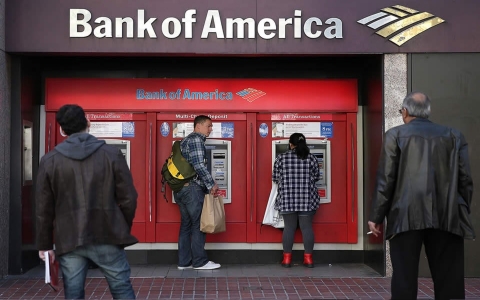Barely 1 in 10 customers who have complained about being ripped off or badly treated by a payday lender has seen any form of relief, according to an analysis by Al Jazeera of data kept by the regulatory authority tasked with protecting against loan sharks.
Figures from the Consumer Financial Protection Board’s (CFPB) database show that the regulator followed up on 1,579 complaints since payday loan customers were first allowed to file grievances with the board last November.
Of the 1,490 complaints that have been successfully closed, just 11 percent resulted in relief for the complainant. About 5 percent resulted in financial recompense, and 6 percent concluded with the consumer receiving some kind of nonmonetary relief, such as changes to the person’s credit report.
Consumer action groups praised the CFPB for finally providing a portal to lodge complaints about predatory tactics by payday lenders but said that the number of victims being handed back cash was “too small.”
The vast majority of complaints to the CFPB — about 86 percent — were “closed with explanation,” meaning the lender offered a response tailored to the individual complaint but provided no substantive relief. A small number of complaints were closed without any explanation or relief from the lender.
Payday loans are short-term cash advances with high interest rates, most often utilized by low-income people who are in immediate need of additional funds but lack access to other banking services.
Some consumer advocacy groups such as National People’s Action (NPA) argue that the payday loan industry preys on the desperation of low-income households, offering them small cash infusions in the short term while saddling them with unpayable debts in the long term. Some payday lenders have been known to charge annual rates of 700 percent or more to customers, potentially locking them into a debt spiral they can't escape.
“This industry wants to snare people in a debt trap and make them roll over loans, roll over loans, roll over loans,” said NPA policy director Liz Ryan Murray. “Because that’s how they make their money in the long run.”
The CFPB estimates that roughly 80 percent of all payday loans are rolled over or renewed within two weeks and that 80 percent of payday loan borrowers either default or roll over their loan in the first year. Business has taken off for payday lenders in the aftermath of the recession. A September report from the Federal Reserve found that the number of Americans who took out a payday loan in the past five years nearly doubled from 2007 to 2013, rising from 2.4 percent of American families to 4.2 percent.
Since it was formed in 2011, the CFPB has been the primary federal agency in charge of investigating suspected predatory lending practices. The agency began accepting payday loan complaints Nov. 6, 2013.

“Before the Consumer Bureau, consumers who had trouble with payday lending products had few places to turn,” CFPB Director Richard Cordray said in a statement at the time. “By accepting consumer complaints about payday loans, we will be giving people a greater voice in this market.”
One year later, someone who complains to the CFPB about payday lending practices is about half as likely as other complainants to receive some form of relief. An agency report from July of this year found that 11 percent of recent complaints to the agency were closed with monetary relief and that another 11 percent were closed with nonmonetary relief. Of all the categories of complaints listed — including complaints regarding debt collection, student loans and money transfers — only complaints regarding mortgages were as likely as payday loan complaints to result in no monetary or nonmonetary relief.
Ruth Susswein, deputy director of national priorities for the nonprofit group Consumer Action, offered conditional praise for the CFPB’s complaint process. The relatively low relief rate for payday loan complaints, she said, was evidence that there was still more work to be done.
“The CFPB, as far as I can tell, has set up by far the best complaint process of any federal government agency,” she said. “However, there’s still work to be done in the complaint resolution area, and while they certainly cannot help resolve every complaint that comes across their desk, we would like to see more attention to resolution. Their numbers are too small, and it would be too easy to assume that if a complaint is closed, it is resolved or in some way settled.”
The CFPB looks for patterns in consumer complaints, so if a particular lender or company receives an unusual volume of complaints or fails to resolve them satisfactorily, the agency may take further action. The CFPB has been known to sue companies believed to be engaging in predatory practices. In September the agency filed suit against the Hydra Group, an online payday lender accused of illegally depositing loans in and withdrawing fees from the bank accounts of unsuspecting consumers. But constraints on the agency’s resources means that it needs to choose targets selectively, as Cordray has acknowledged.
“Complaints are not only opportunities for us to help specific people. They also make a difference by informing our work and helping us identify and prioritize problems,” he said in a speech earlier this month. “We know that if we hear about a particular problem from 50 consumers, it likely looms larger than if we hear about it from two. We know that if we begin to see a disturbing trend, we should consider allocating some of our limited resources to combat that particular problem.”
The Community Financial Services Association of America (CFSA), a leading industry group for payday lenders, maintains that predatory payday lending behavior is the result of a group of bad apples, not a systemic feature of the industry. In an email to Al Jazeera, CFSA spokeswoman Amy Cantu cited the CFPB’s July report, which finds payday loan complaints to be a tiny fraction of the total annual complaints received (in 2013, total complaints numbered 163,700).
“[The number of payday loan complaints] is dwarfed by complaints related to mortgages, debt collection and credit cards, which make up more than two-thirds of the portal’s total volume,” she wrote. “Further, of the complaints attributed to payday loans, many are a result of illegal lenders, scams or fraudulent operators rather than legal, licensed lenders such as CFSA members.”

Databases that track minor financial errors like bounced checks bar people from opening bank accounts

How one rogue tribal member tried to drag the Oglala Sioux into payday lending

In a sputtering economy, debt collectors are working harder than ever to force payment, sometimes even breaking the law






Error
Sorry, your comment was not saved due to a technical problem. Please try again later or using a different browser.